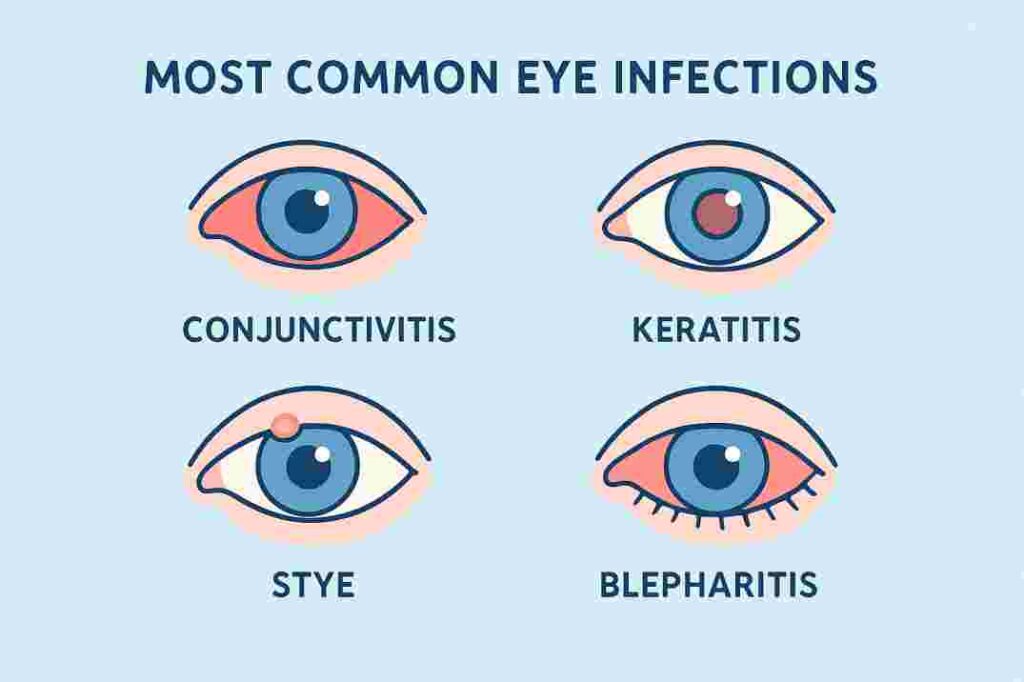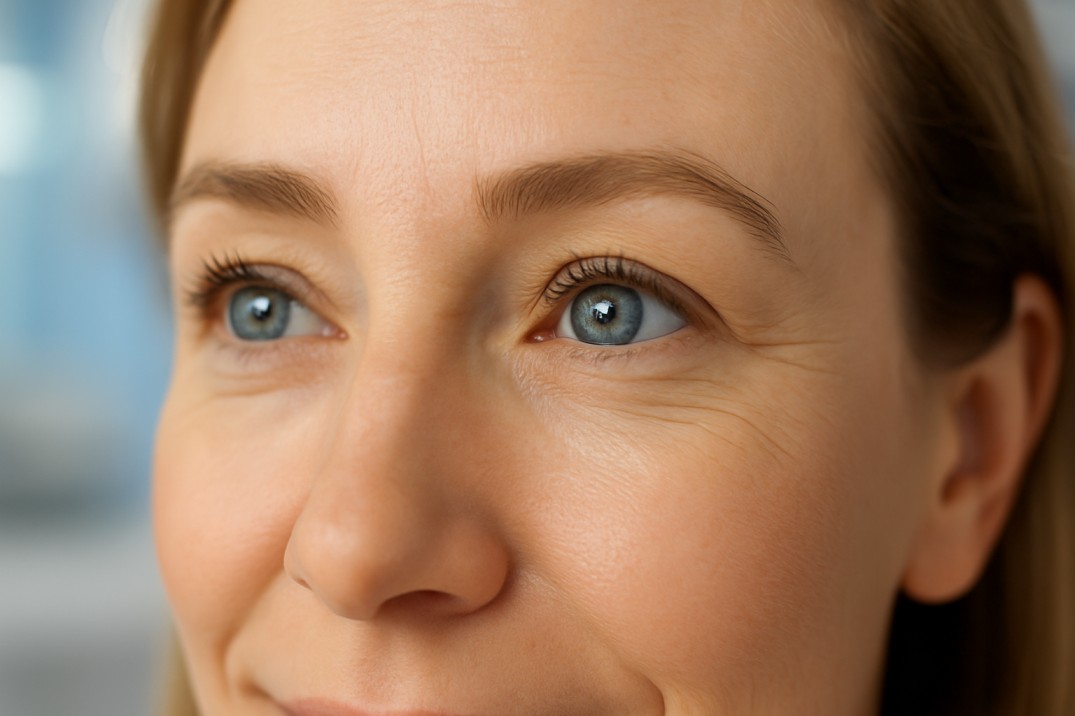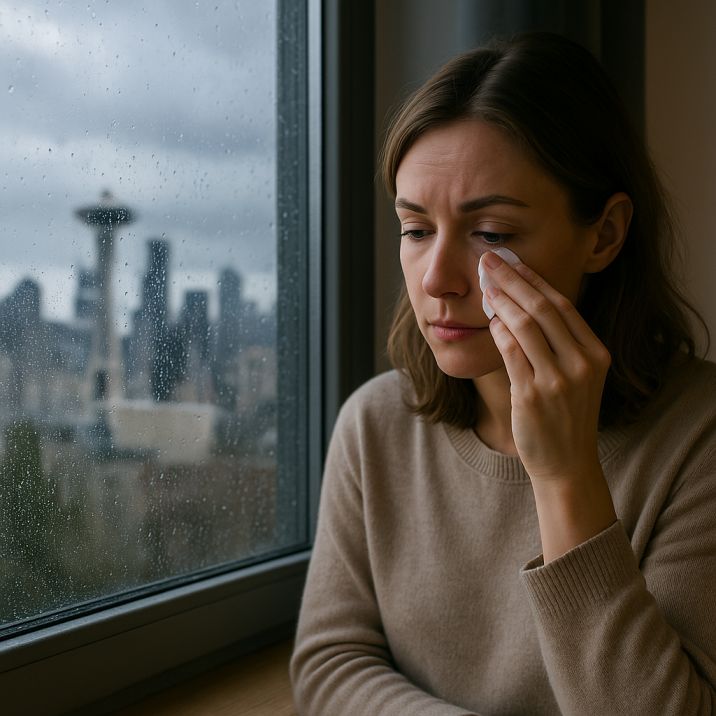How Can You Prevent an Eye Infection?
Eye infections affect millions of Americans each year, but the good news is that most are entirely preventable with the right knowledge and habits. Whether you’re dealing with Seattle’s notorious rainy weather or spending long hours indoors during our Pacific Northwest winters, protecting your eyes from infection should be a top priority.
Understanding Eye Infections: A Guide for Seattle Residents
Eye infections develop when harmful microorganisms—like bacteria, viruses, or fungi—invade the delicate tissues of your eye. For residents of Seattle and the broader Puget Sound area, our characteristically damp climate can contribute to a higher prevalence of certain infections. This is especially true during our rainy fall and winter seasons, when more time spent indoors in close contact with others makes it easier for germs to spread.
Recognizing the most common types of eye infections is the first step toward protecting your vision:
-
Conjunctivitis (Pink Eye): The most frequent eye infection, pink eye causes noticeable redness, itching, and discharge. It’s crucial to identify whether it’s viral, bacterial, or allergic to get the right treatment.
-
Keratitis: An infection of the cornea that is a serious risk for contact lens wearers. Untreated keratitis can lead to significant vision impairment, making prompt care from a Seattle eye doctor essential.
-
Stye (Hordeolum): This painful, red bump on the eyelid is the result of a bacterial infection in an oil gland.
-
Blepharitis: A common and often chronic condition involving inflammation of the eyelids, frequently associated with bacterial overgrowth.
Your First Defense: The Critical Role of Hand Hygiene for Seattleites
When it comes to preventing eye infections, proper hand hygiene isn’t just a suggestion—it’s your single most effective defense. This is especially critical in our community, as recent studies in Nature Scientific Reports highlight a growing concern: one in three bacterial eye infections is now caused by Staphylococcus aureus, and the rise of antibiotic-resistant strains makes prevention more vital than ever for Seattle residents.
The Essential 20-Second Eye Health Routine
Protecting your vision starts at the sink. Consistently follow these steps before touching your eyes or handling contact lenses:
-
Wet your hands thoroughly with clean, running water.
-
Apply soap and work it into a rich lather, scrubbing the backs of your hands, between your fingers, and under your nails.
-
Scrub for a full 20 seconds—the time it takes to hum “Happy Birthday” twice.
-
Rinse all soap away completely under running water.
-
Dry your hands using a clean, dry towel or an air dryer.
Key Times to Wash Your Hands in Seattle
To significantly lower your risk, make hand washing non-negotiable during these daily routines:
-
Before inserting or removing contact lenses. This is the most crucial step for contact lens wearers to avoid serious infections like keratitis.
-
Before applying any eye makeup or medicated eye drops.
-
After returning from public spaces, especially after riding the King County Metro bus, using the Link light rail, or touching high-contact surfaces in shared Seattle spaces.
-
After coughing, sneezing, or blowing your nose.
-
Before and after providing care for a family member with an eye infection.
Protect Your Vision: Contact Lens Safety for Seattle’s Active Lifestyle
Seattle’s vibrant, outdoor-centric lifestyle means many of us are constantly on the move. Whether you’re hiking the trails of Mount Rainier, biking the Burke-Gilman Trail, or exploring the Puget Sound, your contact lenses shouldn’t hold you back—but they demand proper care. For active contact lens wearers in Seattle, strict hygiene is the non-negotiable key to preventing serious, vision-threatening infections.
Your Seattle Contact Lens Hygiene Protocol
Follow this daily routine to keep your eyes safe:
-
Always wash and thoroughly dry your hands before handling your lenses.
-
Use only fresh contact solution for cleaning and storing. Never reuse old solution or simply “top off” the liquid in your case.
-
Gently rub your lenses with solution, even if the brand is labeled “no-rub,” to ensure a thorough clean.
-
Store lenses in a clean case filled with fresh solution every time.
-
Replace your contact lens case every three months to prevent dangerous bacterial buildup.
Critical Risks Every Seattle Wearer Must Avoid
-
Never use tap water, saliva, or any homemade solution to clean your lenses. Seattle’s pristine water still contains microbes like Acanthamoeba that can cause severe infections.
-
Do not sleep in your contacts unless your eye doctor has specifically prescribed them for extended wear.
-
Avoid wearing lenses while swimming, showering, or in hot tubs. Moisture exposure introduces bacteria directly to your eyes.
-
Never ignore discomfort. If your eyes feel irritated, remove your lenses immediately.
Preventing Corneal Ulcers: A Vital Warning for Wearers
Corneal ulcers are among the most severe complications of contact lens wear. At Cannon EyeCare, our Seattle optometrists have seen how quickly these painful infections can develop, often when patients compromise on hygiene or sleep in their lenses.
Seek immediate care from your Seattle eye doctor if you experience any of these warning signs:
-
Severe eye pain or redness
-
Extreme sensitivity to light
-
Sudden vision changes or persistent blurriness
-
Unusual discharge or excessive tearing
-
A visible white spot on the cornea
Smart Makeup Habits for Healthy, Beautiful Eyes in Seattle
In a city known for its creative arts scene and bustling professional environment, eye makeup is a daily part of life for many Seattleites. At Cannon EyeCare, we believe you can enjoy your look while prioritizing your eye health. Adopting safe makeup practices is essential for preventing infections like blepharitis and styes, which can be aggravated by our damp climate.
Safe Application: Start with a Clean Slate
Protecting your eyes begins before you even open your makeup bag. Follow these steps for safe application:
-
Always wash and dry your hands thoroughly to prevent transferring bacteria to your eyes or makeup products.
-
Check expiration dates on all products diligently; old makeup is a common source of bacteria.
-
Use only clean brushes and applicators to avoid introducing germs.
-
Insert your contact lenses first before applying any makeup. This prevents makeup particles from getting trapped underneath your lens.
Make Smart, Seattle-Savvy Product Choices
The products you choose are your first line of defense.
-
Select ophthalmologist-tested and hypoallergenic products whenever possible to minimize the risk of irritation.
-
Never share makeup. This includes testers in stores and makeup applied by artists; insist on new, single-use applicators.
-
Adhere to a strict replacement schedule: toss mascara every 3 months and liquid eyeliner every 6 months to prevent microbial growth.
-
Discard all eye makeup immediately after recovering from an eye infection to avoid recontamination.
The Non-Negotiable: Gentle and Complete Removal
Your nightly routine is just as important as your morning one. Never sleep in makeup, as it can clog the delicate oil glands along your lids, leading to styes and chronic inflammation.
-
Use a gentle, oil-free makeup remover formulated for the eye area.
-
Wipe softly from the outside of your eye inward to avoid dragging debris into your tear duct.
-
Ensure all makeup is removed before going to bed to allow your eyes to breathe and recover overnight.
Protecting Your Eyes from Seattle’s Unique Climate and Environment
Living in the Pacific Northwest means adapting to a distinct climate that directly impacts your ocular health. Seattle’s signature drizzle, dramatic humidity shifts, and prolonged use of indoor heating during our chilly, dark winters can collectively increase your susceptibility to eye irritation and infection. Understanding these environmental factors is key to effective prevention.
Seasonal Eye Care Strategies for the Pacific Northwest
Your eye care routine should change with our seasons to address specific risks.
Fall & Winter (Peak Infection Season):
-
Use a humidifier in your home and office to counteract the parching effect of forced-air heating systems, which can severely dry out your eyes.
-
Be extra vigilant about touching your eyes during the peak of cold and flu season, when viruses are easily spread in indoor spaces.
-
Practice good hand hygiene, especially after commuting on public transit like the bus or light rail, where you touch high-contact surfaces.
Spring & Summer:
-
Proactively manage allergies with guidance from your eye doctor. Pollen from our lush environment can cause inflammation that weakens your eyes’ natural defenses.
-
Wear 100% UV-blocking sunglasses outside. Sun damage can compromise the eye’s surface, making it more vulnerable to infection.
-
Take caution around lakes and rivers; avoid opening your eyes in untreated water to prevent exposure to harmful microorganisms.
-
Stay hydrated to support your body’s natural tear production, which is essential for flushing out irritants.
Workplace Eye Safety: Combating Screen Time and Dry Eye
For Seattle’s tech professionals and office workers, prolonged screen time is a major risk factor, leading to digital eye strain and chronic dry eye—a condition that significantly raises your infection risk by reducing protective tear flow.
Protect your vision at work with these actionable tips:
-
Adhere to the 20-20-20 rule: Every 20 minutes, look at an object 20 feet away for at least 20 seconds to reduce fatigue.
-
Use preservative-free artificial tears to lubricate your eyes if they feel dry or gritty during the day.
-
Optimize your workspace ergonomics with proper lighting to minimize glare and strain.
-
Regularly disinfect your workspace, especially high-touch surfaces like your keyboard, mouse, and phone, which can harbor germs that are easily transferred to your eyes.
Know When to Seek Expert Eye Care at Cannon EyeCare in Seattle
Recognizing the signs that require professional attention is crucial for protecting your vision. While minor irritation can often be managed at home, certain symptoms demand immediate evaluation by an eye care expert. At our Seattle clinic, we urge patients to contact Cannon EyeCare immediately for any of the following serious conditions:
Seek Immediate Medical Attention For:
-
Severe eye pain that is not relieved by over-the-counter remedies.
-
Sudden vision changes, including significant blurriness, double vision, or partial vision loss.
-
Extreme sensitivity to light makes it difficult to keep your eyes open.
-
Thick, yellow, green, or bloody discharge from the eye.
-
A fever that develops alongside eye symptoms.
-
A sensation or visible object in the eye that cannot be flushed out with clean water.
Safe, At-Home Relief While You Prepare for Your Appointment
For mild discomfort as you await professional care, these methods can provide temporary relief:
-
Warm Compresses: Apply a clean, warm, damp washcloth to closed eyelids for 5-10 minutes, 3-4 times daily. This is highly effective for soothing styes and unclogging irritated oil glands.
-
Preservative-Free Artificial Tears: Use these lubricating drops as directed on the packaging to help flush out irritants and maintain essential eye moisture.
-
Gentle Eyelid Cleaning: Using a clean cloth and warm water, gently wipe away any discharge from the eyelids. Always wipe from the inner corner outward, and use a fresh section of the cloth for each pass to avoid recontamination.
Preventing eye infections doesn’t require complex procedures or expensive treatments. By following the evidence-based strategies outlined in this guide, you can significantly reduce your risk of developing painful and potentially serious eye infections.
Remember these key takeaways:
-
Hand hygiene is your most powerful prevention tool
-
Contact lens safety requires consistent daily habits
-
Environmental factors in Seattle require season-specific strategies
-
Professional care should be sought promptly when symptoms are severe
At Cannon EyeCare, we’re committed to helping Seattle residents maintain healthy vision throughout their lives. If you have questions about eye infection prevention or need to schedule a comprehensive eye exam, contact our Seattle practice today. Your eyes are precious – protect them with the care they deserve.
FAQs
-
Wash your hands thoroughly with soap and water for 20 seconds before touching your eyes, inserting contacts, or applying makeup. Always wash after using public surfaces or being around sick people.




